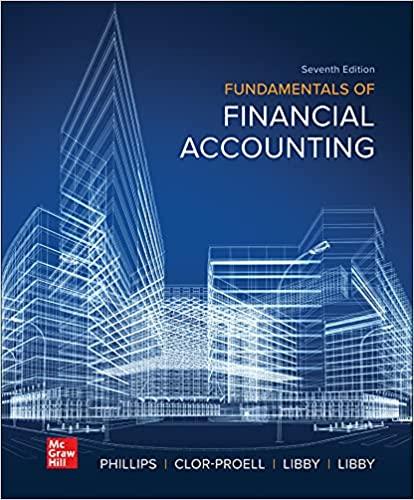Question
Question: CHAPTER 7 Circle the letter of the best response. 1-Which of the following is not a primary objective that internal control is designed to
Question:
CHAPTER 7
Circle the letter of the best response.
- 1-Which of the following is not a primary objective that internal control is designed to accomplish?
A-Safeguard assets
B-Promote operational efficiency
C-Monitor risk assessment
D-Ensure accurate, reliable records
- 2-The Sarbanes-Oxley Act
A-stipulates that violators of the act may serve 5-10 years in prison for securities fraud and/or falsifying financial statements.
B-requires the Financial Accounting Standards Board to oversee auditors of public companies.
C-requires that the internal control environment must reflect the "tone at the top."
D-prohibits auditors of public companies from performing certain consulting services for those companies.
- 3-Joseph Lane, who receives cash from customers, conspires with Terry Baxter, who posts the collections to customer Accounts Receivable, to falsify records so they can take the cash for themselves. This is an example of
A-separation of duties
B-assignment of responsibilities
C-collusion
D-cost/benefit limitations
- 4-A firewall
A-avoids the need for separation of duties.
B-limits access into a local computer network.
C-protects buildings by preventing the spread of flames.
D-rearranges plain-text messages by a mathematical process.
- 5-The document that accompanies a payment to explain the reason for the payment is a(n)
A-remittance advice
B-bank reconciliation
C-electronic fund transfer
D-lock-box document
- 6-Which of the following is not a component of internal control?
A-Environment
B-Information system
C-Risk assessment
D-Audits
- 7-The petty cash fund had an initial balance of $125. It currently has $15 and petty cash tickets totaling $85 for office supplies. The entry to replenish the fund would contain a
A-debit to Cash Short & Over for $25
B-credit to Cash Short & Over for $25
C-debit to Petty Cash for $110
D-credit to Petty Cash for $110
- 8-RT Company's Cash account shows an ending balance of $1,850. The bank statement shows a $52 service charge and an NSF check for $280. Other records indicate that a $240 deposit is in transit, and outstanding checks total $535. What is RT's adjusted cash balance?
A-$1,223
B-$1,518
C-$1,555
D-$2,078
- 9-Which of the following bank reconciliation items is correctly described?
A-Deposits in transit increase the book side of the reconciliation.
B-NSF checks increase the book side of the reconciliation.
C-Outstanding checks decrease the bank side of the reconciliation.
D-Service charges decrease the bank side of the reconciliation.
10Smith Automotive Parts had the following select financial data as of December 31, 2015:
| Cash | $15,000 |
| Cash Equivalents | 3,000 |
| Total Current Assets | 40,000 |
| Total Current Liabilities | 30,000 |
What is Smith's cash ratio? (Round your answer if necessary.)
A-5.00
B-0.60
C-0.50
D-0.45
Step by Step Solution
There are 3 Steps involved in it
Step: 1

Get Instant Access to Expert-Tailored Solutions
See step-by-step solutions with expert insights and AI powered tools for academic success
Step: 2

Step: 3

Ace Your Homework with AI
Get the answers you need in no time with our AI-driven, step-by-step assistance
Get Started


